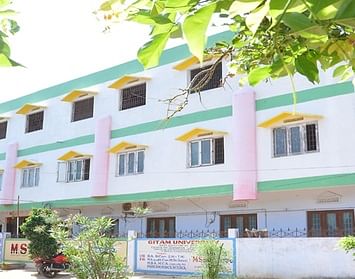CA (Chartered Accountancy) Syllabus and Subjects

The CA syllabus is divided into three phases such as Foundation, Intermediate and Final. CA course focuses on the concepts of finances and accounting with in-depth knowledge of cost management, budget analysis, tax accounting, risk management, etc.
CA Syllabus is designed by the Institute of Chartered Accountant of India (ICAI) and the exams are conducted twice a year. The CA job scope has an extensive range of job roles from accountants, auditing experts, and taxation experts to business consultants in both private and public sectors.
CA Subjects and Syllabus
Chartered Accountancy as a course aims to introduce students and aspirants to the concepts surrounding the financial sector. There are three levels in the CA course: Foundation syllabus or Common Proficiency course, CA intermediate syllabus or Integrated Professional Competence Course, and the CA Final new syllabus.
CA subjects focuses on imparting required practical knowledge to students in areas such as business law, cost and accounting, taxation, logical reasoning, etc to enable them work with top organisations or to start their own firm as entrepreneurs. Listed below is the detailed CA syllabus and subjects for each paper:
CA Foundation or CPT Subjects
CA Foundation syllabus has 4 papers in total covering topics such as business correspondence, statistics, business mathematics, etc. Below is the list of CA Foundation Subjects along with its papers:
| CA Foundation Paper | CPT Subjects |
| Paper 1 | Principles and Practices of Accounting |
| Paper 2 |
|
| Paper 3 |
|
| Paper 4 |
|
CA Intermediate or IPCC Subjects
CA Intermediate has 8 papers in total covering topics such as Application of Accounting Standards, Company Accounts, Accounting for Special Transaction, etc. Below is the list of CA Intermediate subjects for each paper:
| CA Intermediate Paper | IPCC Subjects |
| Paper 1 | Accounting |
| Paper 2 |
|
| Paper 3 |
|
| Paper 4 |
|
| Paper 5 | Advanced Accounting |
| Paper 6 | Auditing and Assurance |
| Paper 7 |
|
| Paper 8 |
|
CA Final Subjects
The CA Final subjects and syllabus covers extensive topics such as Risk Management, Financial Management, Financial Reporting, etc. Here is a list of CA Final Subjects:
| CA Intermediate Paper | Subjects |
| Paper 1 | Financial Reporting |
| Paper 2 | Accounting |
| Paper 3 | Advanced Auditing and Professional Ethics |
| Paper 4 |
|
| Paper 5 | Strategic Cost Management and Performance Evaluation |
| Paper 6 |
|
| Paper 7 |
|
| Paper 8 |
|
CA Course Duration
Chartered Accountancy is divided into three levels, and each step has to be cleared by the candidate to become a CA. CA course duration is usually 3 to 5 years. If students decide to pursue CA after the 12th, the course will be five years long. Whereas, if students decide to pursue CA after completing their undergraduate degree, the course will become shorter for them.
The students gain exposure to different concepts regarding the financial sector, banking and management. Below are some essential concepts taught in the CA foundation subjects, CA intermediate subjects, and CA final subjects:
- Core Accounting
- Financial System Design
- Preparation of Financial Reports
- Taxation and Auditing
- Management and Banking
CA Course Structure
Chartered Accountancy course syllabus India is designed to ensure that students can pursue their dream to become chartered accountants. The course has core subjects and internships, which help students build a career in their direction. The course structure is as follows:
Core Subjects
The CA Core Subjects are as follows:
- Accounting.
- Cost Accounting and Financial Management.
- Advanced Accounting.
- Taxation.
- Auditing and Assurance.
- Business Laws, Ethics and Communication.
- Information Technology and Strategic Management.
- Corporate and other Laws.
Articleship
The CA Articleship is an essential aspect of the CA course where a student will have to enrol in a Certified Accountant Practice for 3 years before being eligible for the CA Final course.
How to Become a Chartered Accountant?
Candidates must meet specific eligibility requirements and apply for and complete the required degree to become a CA. The following are the key points on how to become a chartered accountant:
Register for CPT
The Institute of Chartered Accountants of India has approved the Chartered Accountant Basic Level Exam as a common skill exam. Students to need gain eligibility for the second-level entrance exam needed to become a CA.
Register for IPCC
Passing the CPT exam qualifies candidates for the next level of the Integrated Professional Competency Course. The IPCC comprises seven exams that are divided into two groups (Group 1 + Group 2). To advance to the next level, candidates must qualify for at least one group.
ITT and Orientation
Candidates interested in becoming a CA must enrol in an information technology training programme. The course introduces the skills and knowledge required for a career in accounting. The ITT and orientation registration processes are the only things that need to be paid attention to. As a result, it is critical to apply for ITT and orientation programmes before enrolling in an articleship.
Registering for Articleship
Articleship is an integral part of the certification process because it gives students valuable accounting experience. Those interested in pursuing a career as a Certified Accountant should enrol in a Certified Accountant Practice for three years of articleship support.
Individuals can begin by working for a financial firm or an accounting firm, where they will gain practical experience dealing with clients and managing financial programmes. They are considered eligible to sit for the CA exam after gaining sufficient work experience.
Qualify CA Final Course
Candidates must take the CA final exam during the last six months of articleship training. This is the last step in the CA process, after which a candidate can work in the industry for a while.
CA Teaching Methodology and Techniques
CA teaching methodology and techniques are traditional classroom teaching. The subjects and training are around the concepts tested in the CA exams and aim to prepare students for the final examination. All the institutes around the country follow a very similar structure to ensure that students can get the best education they need to complete the exams.
- Core subjects centred around the CA exam papers
- Traditional Classroom-based teaching
Books For Reference
Below is a list of books according to CA courses:
CA Foundation Reference Books
The list of the CA Foundation Reference Books is as follows:
| Name of the Book | Author |
| Scanner CA Foundation on Principles And Practice Of Accounting | Shuchita Prakashan |
| Scanner CA Foundation on Business Laws And Business Correspondence And Reporting | Shuchita Prakashan |
| Scanner CA Foundation on Business Mathematics, Logical Reasoning And Statistics | Shuchita Prakashan |
| Business Economics And Business And Commercial Knowledge | Bharat Tusian and PC Tulsian |
CA Intermediate Reference Books
The list of the CA Foundation Reference Books are as follows:
| Name of the Book | Author |
| First lessons in Accounting Standards | MP Vijay Kumar |
| A Handbook on Corporate and Other Laws | Munish Bhandari |
| Cost Accounting for CA-IPC | PC Tulsian |
| Handbook On Taxation | G. Sekhar |
| Tulsian’s Accountancy: For CA Intermediate Course (Group II) | PC Tulsian and Bharat Tulsian |
| Auditing and Assurance for CA Inter | Surbhi Bansal |
| Padhuka's Students' Guide For Enterprise Information Systems & Strategic Management | B. Saravana and Prasath G. Sekar |
CA Final Reference Books
The list of CA Final Reference Books is as follows:
| Name of the Book | Author |
| Strategic Cost Management and Performance Evaluation: CA Final New Syllabus | B Saravana Prasath |
| Comprehensive Approach to Advanced Auditing and Professional Ethics | CA Vikas Oswal |
| Padhuka’s A Ready Reference on Advanced Management Accounting | CA Prasath B Saravana |
| Padhuka’s Student Reference On Indirect Taxes: CA Final Old and New Syllabus | G Serkar and B Sarvana Prasath |
| GST Compact Book: Indirect Tax | CA Raj Kumar |
| Conceptual Learning A Handbook on Indirect Tax Law | Yashwant Mangal |





